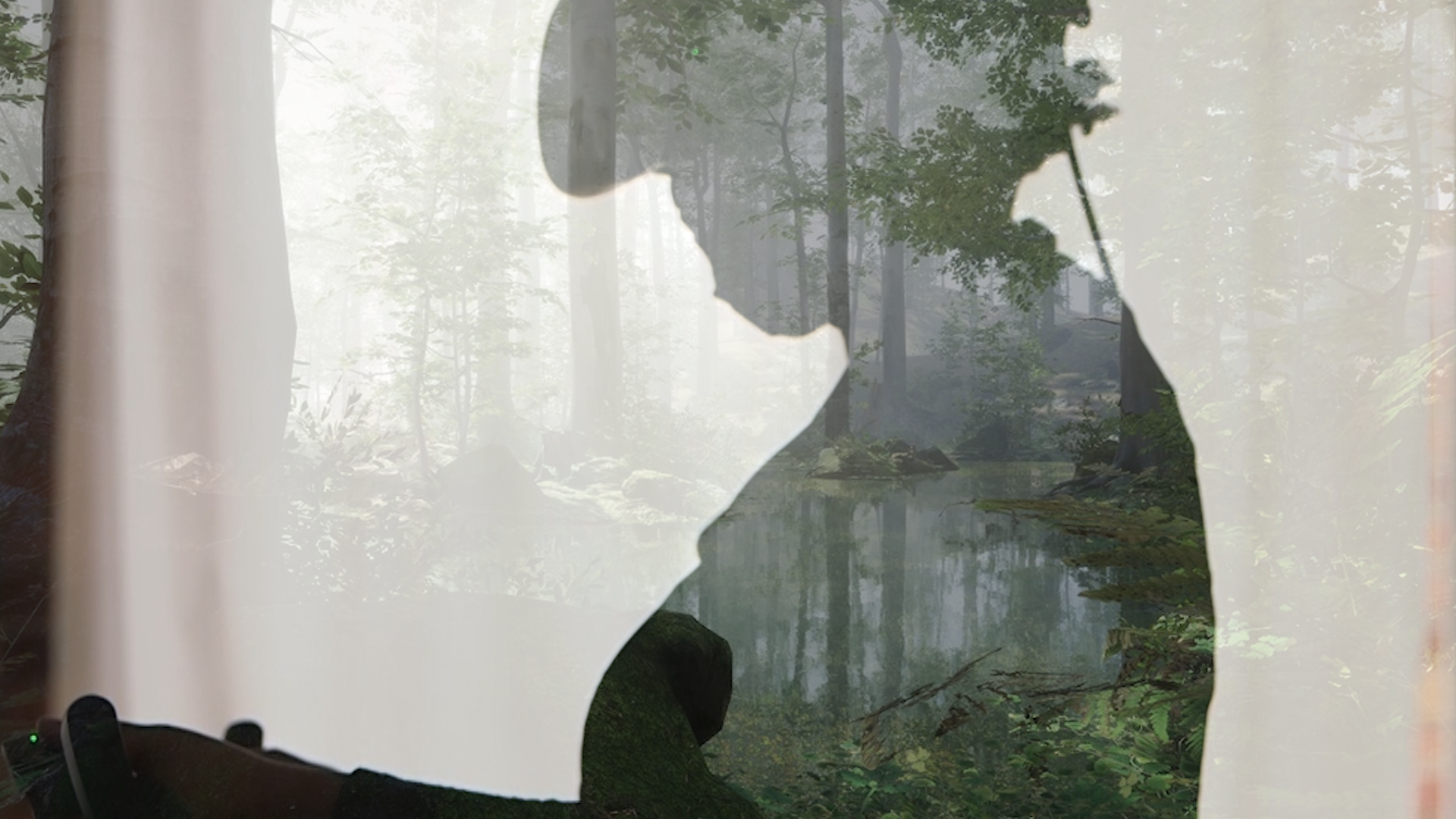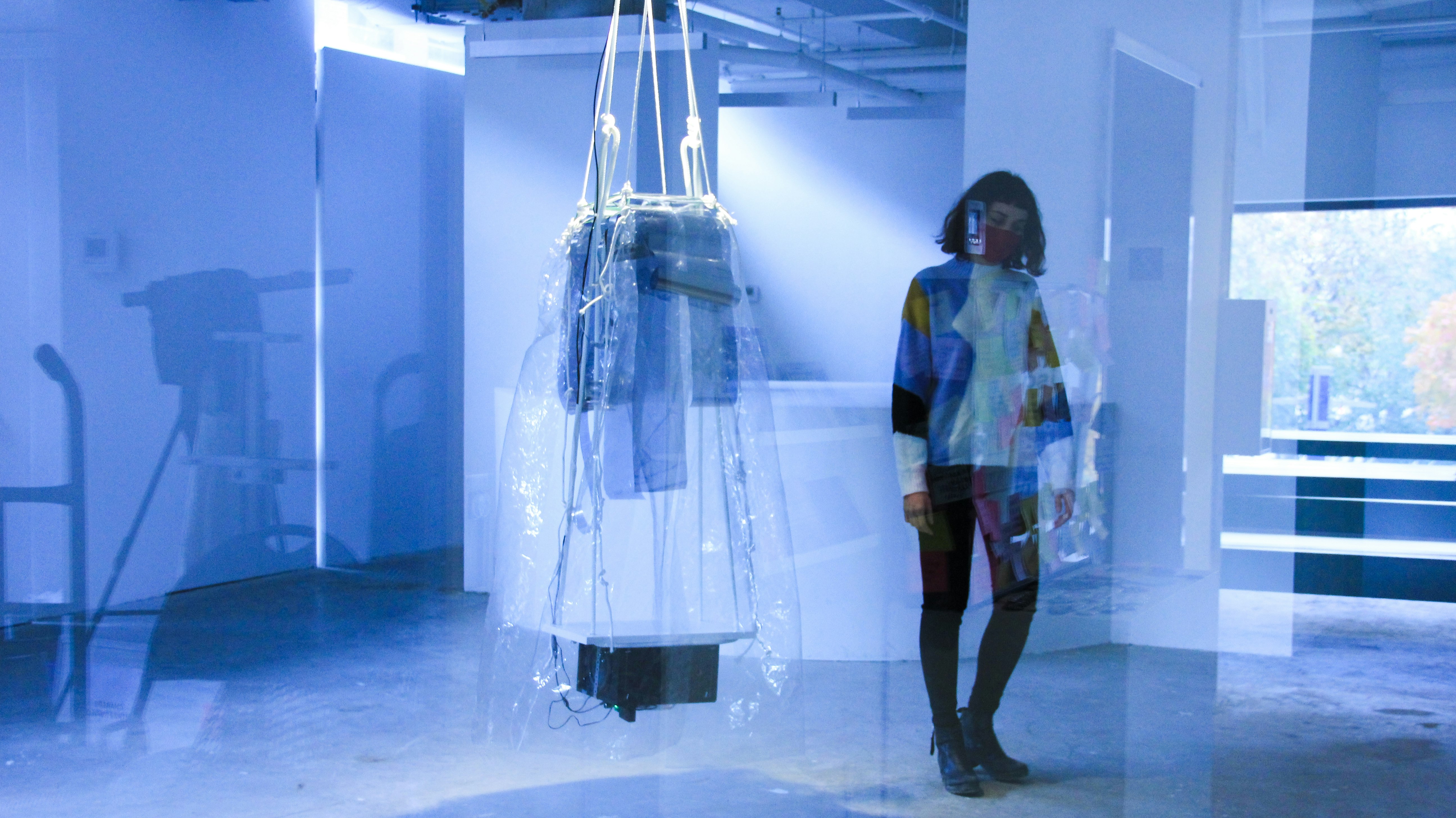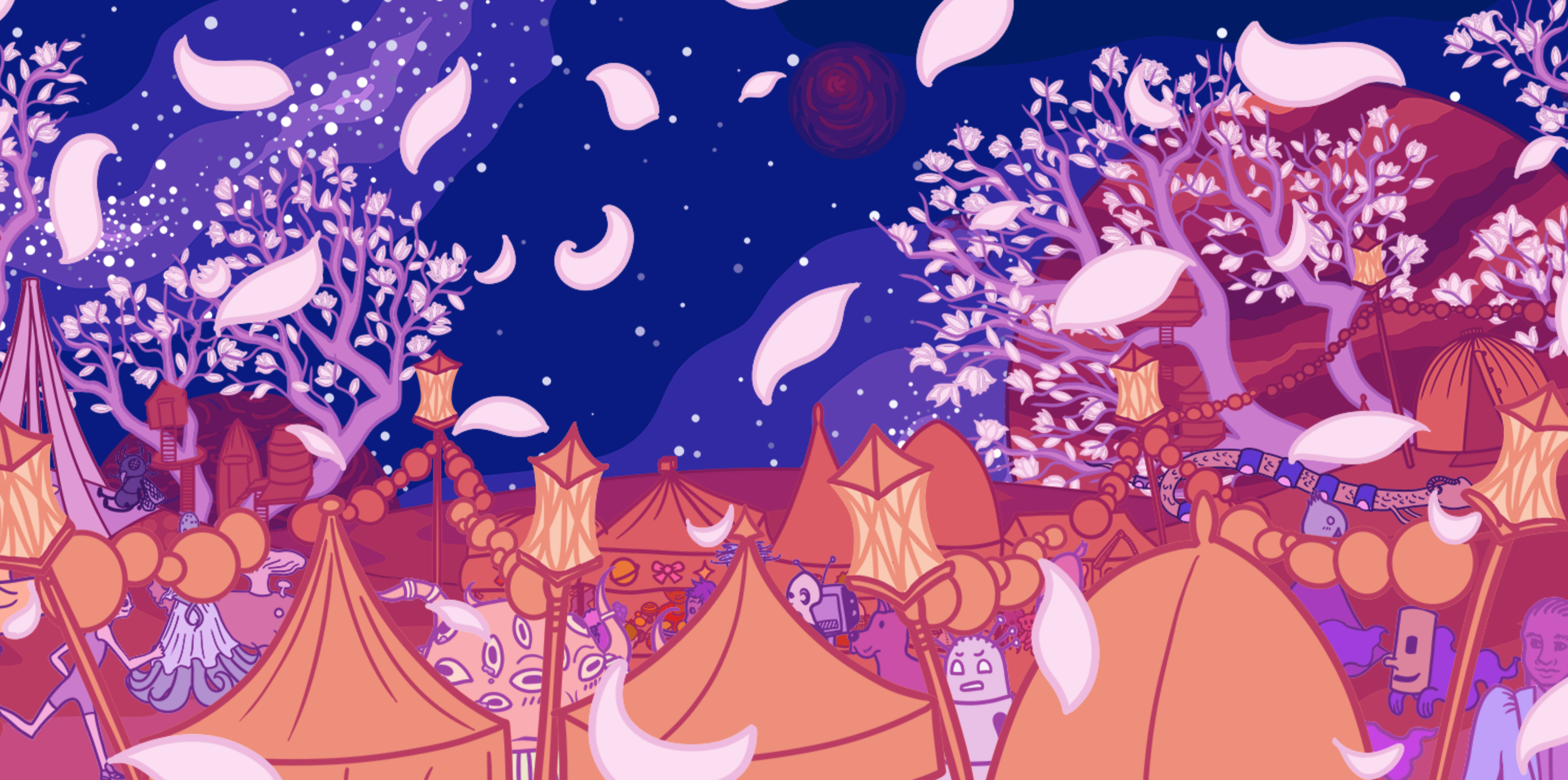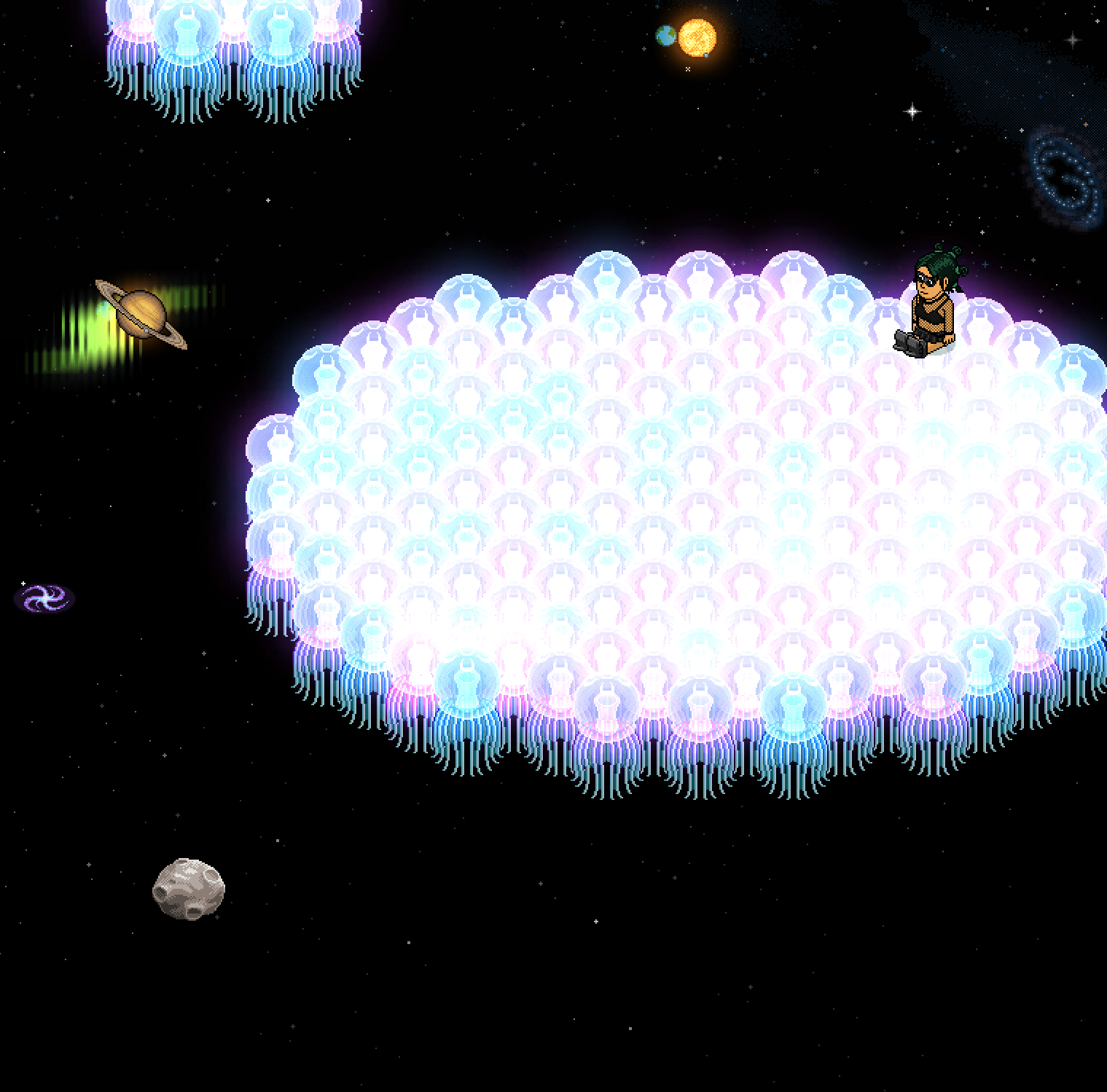- Cause + effect
- Choice
- Roleplay
- Mirroring reality
- Alignment
- Sentient
- Untethered
- Physicality
- Rule maker
- God
- Authority
- Control
- Power
- Harrowing
- Boundless
- Parameters
- World-building
- Cyclical events
- Analogue
- Touch
- Intimacy
- Cold
- Lonely
- Singular
- Outcomes
- Simulations
- Illusions
- FragmentsInterface
- Text-based
- Virtual
- Sounds
- Bodies
- Shell
- Cron jobs
- Dis/connection
- Embodiment of memory
- Disengaged
In reflecting upon Remote Realities, an exhibition dedicated to the concept of play, I surprisingly find myself meandering through multiple fears. I don't have the exact words to describe the experience, and this text may be as disjointed as they come. But I've broken it down. Let's pretend this lack of fully synthesized thoughts is a metaphor for the many avenues of an online interface.
Perfect Loops
The idea of “infinite” has always been daunting to me. What does it mean for something to continue endlessly? Under the laws of the physical world, it is inevitable for things to have endings. It is also natural for us to grieve that loss and then eventually go on to find new beginnings. But to grapple with the edges of digital space is an endless struggle. The paradox of the “end” is that we naturally desire closure while simultaneously—and perhaps secretly—wish for the perpetual. Faced with the bottomless scroll, I realize that what I fear is not the inability to cease; I fear the unknown. Not ready to choose between continuing through endless repetition, deactivating, or archiving, I find myself disconnecting mentally from the interface. What if there are no finite ends in digital realms, but rather only perpetual boredom that provokes action?
So then, to disengage means to step away fully.
Rule Maker
In every logical world, each relationship operates on a give and take, and every action, a cause and effect. However, this is not always the case in certain virtual realms of play, which raises the question: what is my role within "play"? Who has control in the world-building, creating the ground rules within which we operate? In digital spaces such as online games, I may give up my agency to see the world as it was meant to be experienced by the world-builder. Furthermore, what is my motivation for entering into the virtual space—is it a diversion, distraction, or expansion of my physical limits?
Throughout the past year, I have become more conscious of what exactly is in my control (not much, apparently) and even less willing to give up what little I have. But even as I immerse myself in a virtual space, I realize that virtual games must have limitations, too—and upon becoming aware of the boundaries, I am reminded of the levels of mediation it took to convince myself of this immersion. In mirroring or building new systems in virtual contexts, there is either an acceptance of relinquished control or admitting to wanting to hold the responsibility of “god.”
Make-Believe Interface
As you read this text, you may question if this is simply a confession of existentialism. In part, yes. What with today’s social distancing, who else is there to receive my thoughts besides this document and my typing keys? Instead, I oscillate at the axis of isolation and community. Through the act of play, I am simultaneously alone and yet not. At the very least, I am also not dissimilar from everyone else around me.
Even if the only thing grounding a viewer in the online exhibition experience is the clicking of keys or the tapping of the screen, it doesn't negate the authenticity of social interaction. When I leave and return to the physical environment, I am reminded of my natural slouched posture when interacting with my screen. I can't help but notice the aches in my neck and wrists and the strain in my eyes.
Viewing the works in Remote Realities, I reflect on the mechanics for building relationships through shared experiences and yet feel a sense of disassociation while interfacing with them. In playing, am I hoping for a distraction, a sense of connection, imagining different worlds, or finding answers to draw back into my current reality? Perhaps the works in Remote Realities confront my fears of isolation more than they critique my desires for communal online play.
Program team: Emily Fitzpatrick, Karina Iskandarsjah, Izzie Colpitts-Campbell, Jennie Robinson Faber
Exhibition essay: Abby Ho
Thank yous: Henry Faber, Toronto Media Arts Centre & Gamma Space



